Description
Itraconazole (Itrotab 100) 100 mg capsules is mainly used to treat fungal infections. It belongs to the drug class of azole antifungals. It helps manage, control, prevent and improve various kinds of fungal infections by suppressing fungal growth in the body. Each capsule contains 100 mg of Itraconazole as its active ingredient.
Drug = Itraconazole
Strength = 100 mg
contains = 4 tablets
How to take
Itraconazole is available as a tablet, capsule (conventional or pulse-release form), or as an oral solution.
If you have been given the tablet, conventional capsule or pulse-release capsule, take it immediately after a meal. Swallow it whole. Do not divide, chew, crush or break the tablet or capsule.
Try to take it at the same time each day. It must be taken regularly for it to be effective.
Take exactly as directed by your doctor or according to the instructions on the label. Do not take more or less than instructed by your doctor. Do not stop taking it unless instructed by the doctor.
Dosage of Itraconazole (Itrotab 100) 100 mg Capsules
Nail fungal infections:
Adult: As cap: 200 mg once daily for 90 days. As pulse treatment: 200 mg twice a day for seven days, repeated once for fingernails and twice for toenails after drug-free intervals of 21 days.
Pityriasis Versicolor:
Adult: As cap: 200 mg once daily for seven days.
Primary or secondary prophylaxis of infections in neutropenic or AIDS patients:
Adult: As cap: 200 mg daily, may increase to 200 mg twice a day if necessary.
Tinea corporis, Tinea cruris:
Adult: As cap: 100 mg once daily for 15 days or 200 mg once daily for seven days.
Oropharyngeal candidiasis:
Adult: As cap: 100 mg once daily for 15 days. In patients with AIDS or neutropenia: 200 mg once daily for 15 days.
Systemic fungal infections:
Adult: As cap: 100-200 mg once daily, may increase to 200 mg twice a day for invasive or disseminated infections. In life-threatening infections: As cap: Loading dose: 200 mg three times a day for three days.
Tinea manuum, Tinea pedis:
Adult: As cap: 100 mg once daily for 30 days. As pulse treatment: 200 mg twice a day for seven days.
Vulvovaginal candidiasis:
Adult: As cap: 200 mg twice a day for one day.
Missed Dose of Itraconazole (Itrotab 100) 100 mg Capsules
If you often forget to take your medicine, let your doctor and pharmacist know.
Take the missed dose as soon as you remember. If it is almost time for your next dose, skip the missed dose and return to your usual dosing schedule.
Do not double a dose under any circumstances.
Overdose of Itraconazole (Itrotab 100) 100 mg Capsules
If you think you may have used Itraconazole more than the usual dose, please seek medical help immediately.
Contraindications
People with the following medical conditions should not take Itraconazole:
- Hypersensitivity
- History of Congestive Heart Failure
- Pregnancy (non-life-threatening infection)
Side Effects
Itraconazole may have the following side effects:
- Heart failure
- Pulmonary edema
- Neuropathy
- Transient or permanent hearing loss
- Transient asymptomatic decrease of left ventricular ejection fraction (LVEF)
- Hepatotoxicity
- Hypersensitivity reactions
- Granulocytopenia
- Leukopenia
- Thrombocytopenia
- Chest pain
- Tachycardia
- Tinnitus
- Visual disturbance
- Blurred vision
- Diplopia
- Nausea
- Abdominal pain
- Vomiting
- Diarrhea
- Dyspepsia
- Constipation
- Edema
- Fatigue
- Pyrexia
- Jaundice
- Hepatitis
- Hyperbilirubinemia
- Urticaria
- Elevated liver enzymes
- Increased serum creatine phosphokinase
- Hypokalemia
- Hypertriglyceridemia
- Myalgia
- Arthralgia
- Headache
- Dizziness
- Paresthesia
- Dysgeusia
- Pollakiuria
- Urinary incontinence
- Menstrual disorder
- Erectile dysfunction
- Dyspnea
- Cough
- Sinusitis
- Rhinitis
- Rash
- Pruritus
- Photosensitivity
- Alopecia
- Hypertension
- Hypotension
Potentially Fatal:
- Acute liver failure (rare)
Warnings
Do not take Itraconazole with the following medicines:
- Carbamazepine
- Phenobarbital
- Phenytoin
- Isoniazid
- Rifabutin
- Rifampicin
- Nevirapine
- Efavirenz
- Antimuscarinics
- Antacids
- Proton Pump Inhibitors
- Histamine H2-receptor antagonists
- Indinavir
- Ritonavir
- Telaprevir
- Erythromycin
- Clarithromycin
- Ciprofloxacin
- Meloxicam
- Digoxin
- Alfentanil
- Oxycodone
- Repaglinide
- Bilastine
- Alprazolam
- Midazolam (IV)
- Buspirone
- Saquinavir
- Praziquantel
- Bosentan
- Aprepitant
- Reboxetine
- Fesoterodine
- Solifenacin
- Tamsulosin
- Tadalafil
- Sildenafil
- Cinacalcet
- Tolvaptan
- Busulfan
- Docetaxel
- Trimetrexate
- Vinca alkaloids
- Ciclosporin
- Tacrolimus
- Budesonide
- Dexamethasone
- Fluticasone
- Apixaban
- Cilostazol
- Coumarins
- Fentany
- Verapamil
Potentially Fatal:
- Astemizole
- Bepridil
- Cisapride
- Disopyramide
- Dofetilide
- Dronedarone
- Felodipine
- Halofantrine
- Lercanidipine
- Levacetylmethadol
- Mizolastine
- Nisoldipine
- Pimozide
- Quinidine
- Sertindole
- Terfenadine
- Dihydroergotamine
- Ergometrine
- Simvastatin
- Lovastatin
- Triazolam
- Midazolam (oral)
- Lurasidone
- Irinotecan
- Eplerenone
- Ranolazine
- Colchicine
Always notify your doctor and pharmacist if you are taking any other medicines, including herbal tonics such as traditional Chinese medicine, supplements and medicines that you buy without a prescription.
This list does not include all medicines that may interact with Itraconazole.
How Does It Work?
Itraconazole is a highly selective inhibitor of fungal cytochrome P-450-dependent enzyme, thereby decreasing ergosterol biosynthesis and inhibits the formation of fungal cell membranes. Ergosterol is a significant component of the fungal cell membrane; inhibition of its synthesis leads to increased cellular permeability, thereby causing leakage of cellular contents.
Uses
Itraconazole is used to treat the following conditions:
- Esophageal candidiasis
- Oral candidiasis
- Prophylaxis of fungal infections in immunocompromised patients
- Oropharyngeal candidiasis
- Vulvovaginal candidiasis
- Pityriasis Versicolor
- Tinea corporis
- Tinea cruris
- Nail fungal infections
- Systemic fungal infections
- Prophylaxis of infections in neutropenic or AIDS patients
Special Precautions and Connected Warnings
Take special precautions if you have the following conditions:
- Ischemic or valvular disease
- Edematous disorders
- Renal failure
- Chronic obstructive pulmonary disease (COPD)
- Achlorhydria
- Immediate life-threatening systemic fungal infections
- Cystic fibrosis
- Neutropenic
- Acquired immunodeficiency syndrome (AIDS)
- Organ transplant patients
- Renal and hepatic impairment
- Elderly
- Pregnancy (life-threatening infection)
- Lactation
Storage Conditions
- Cap, tab: Store between 15-25°C and protected from light and moisture.
- Store in a cool, dry place away from the reach of children.
- Do not use Itraconazole that is expired or out of date.

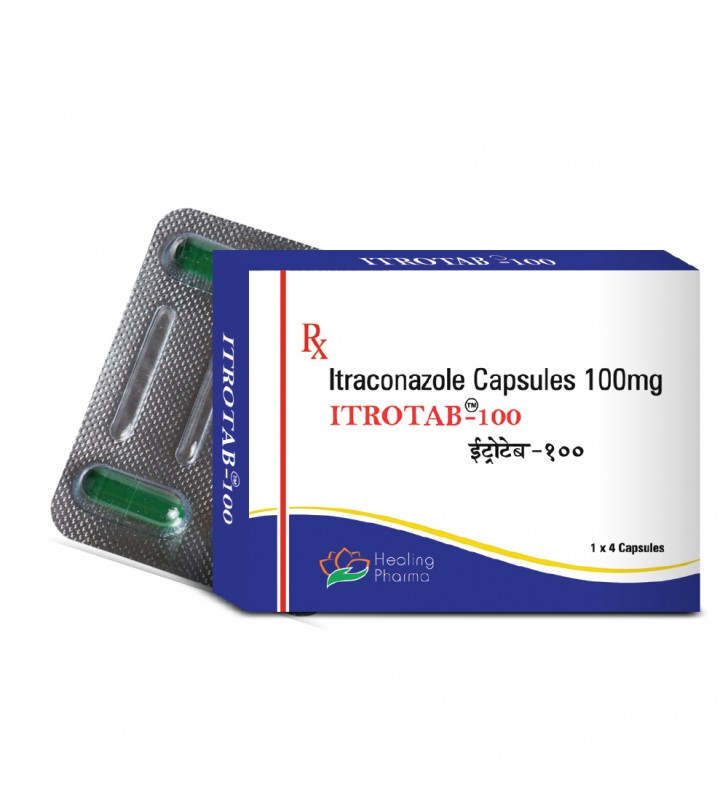
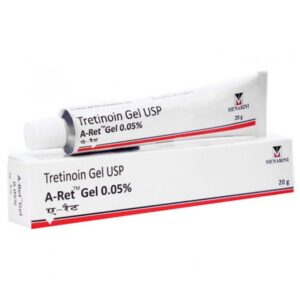
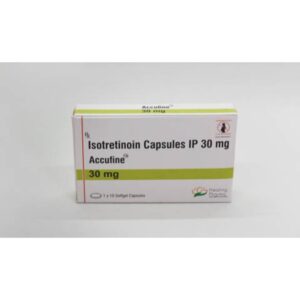
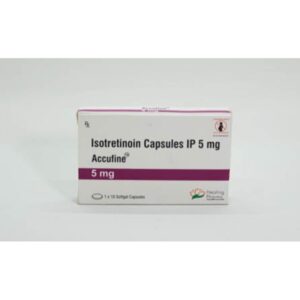
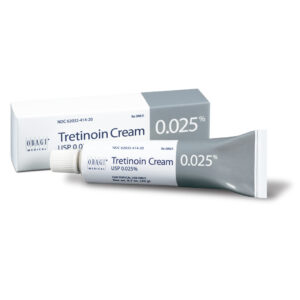
Reviews
There are no reviews yet.